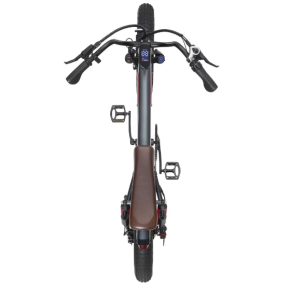The versatility of hybrid bicycles has often prompted enthusiasts to question their capabilities beyond paved paths. These bicycles, designed as a cross between road and mountain bikes, present a unique solution to riders looking for a multi-purpose machine. But when it comes to off-road adventures, can they truly hold their ground?
Hybrid bikes are typically equipped with features that make them suitable for different terrains. They boast a comfortable upright riding position, which gives the rider a good vantage point when navigating through unpredictable off-road trails. The tires, often wider than those on road bikes but narrower than mountain bike tires, offer a balance between speed and traction.
When considering off-road conditions, the frame and suspension come into play. Hybrids usually have a sturdy frame that can withstand varied landscapes. However, they may lack the full suspension systems found in dedicated off-road bikes, which can make a significant difference in handling rough terrain. This is where riders must assess the level of ruggedness they intend to face.
Furthermore, the advent of 48v electric bikes has added a new dimension to the hybrid category. These electric variants enhance the rider's ability to tackle hills and long distances, thanks to their battery-powered assistance. With this added power, hybrids can more readily confront the challenges of off-road trails. The electric assist compensates for the potential lack of a full suspension, making rides smoother and less fatiguing.

Another consideration is the bike’s components. The quality of gears and brakes heavily influences off-road performance. Hybrids often have a range of gears that can handle small hills and moderately rough terrain. Disc brakes, which are becoming more common on these bikes, provide reliable stopping power essential for the unpredictability of off-road conditions.
It's worth noting that while hybrids can be taken off-road, they are not optimized for extreme mountain biking. They strike a balance that serves well on light trails and gravel paths, but may not be suitable for more technical or challenging off-road adventures. Riders looking for a bike that can handle such demanding conditions might want to consider a specialized mountain bike.
For those interested in exploring the potential of hybrids off the beaten track, 48v electric bikes offer an exciting prospect. They promise to extend the boundaries of where a hybrid can go, granting more power and confidence to the rider.
In evaluating whether hybrid bikes are fit for off-road, one must consider the terrain, the bike's specifications, and their own riding style. While hybrids serve as an excellent all-rounder, they do have limitations that should be acknowledged to ensure both the rider's safety and the bike's longevity.
Ultimately, the suitability of hybrid bikes for off-road comes down to the specific design of the bike and the demands of the trail. For casual off-road excursions, hybrids can be a competent choice, especially when boosted by electric power. However, for dedicated off-road trails, a mountain bike would be more appropriate. As with any cycling decision, matching the bike to the intended use is key to a satisfying ride.